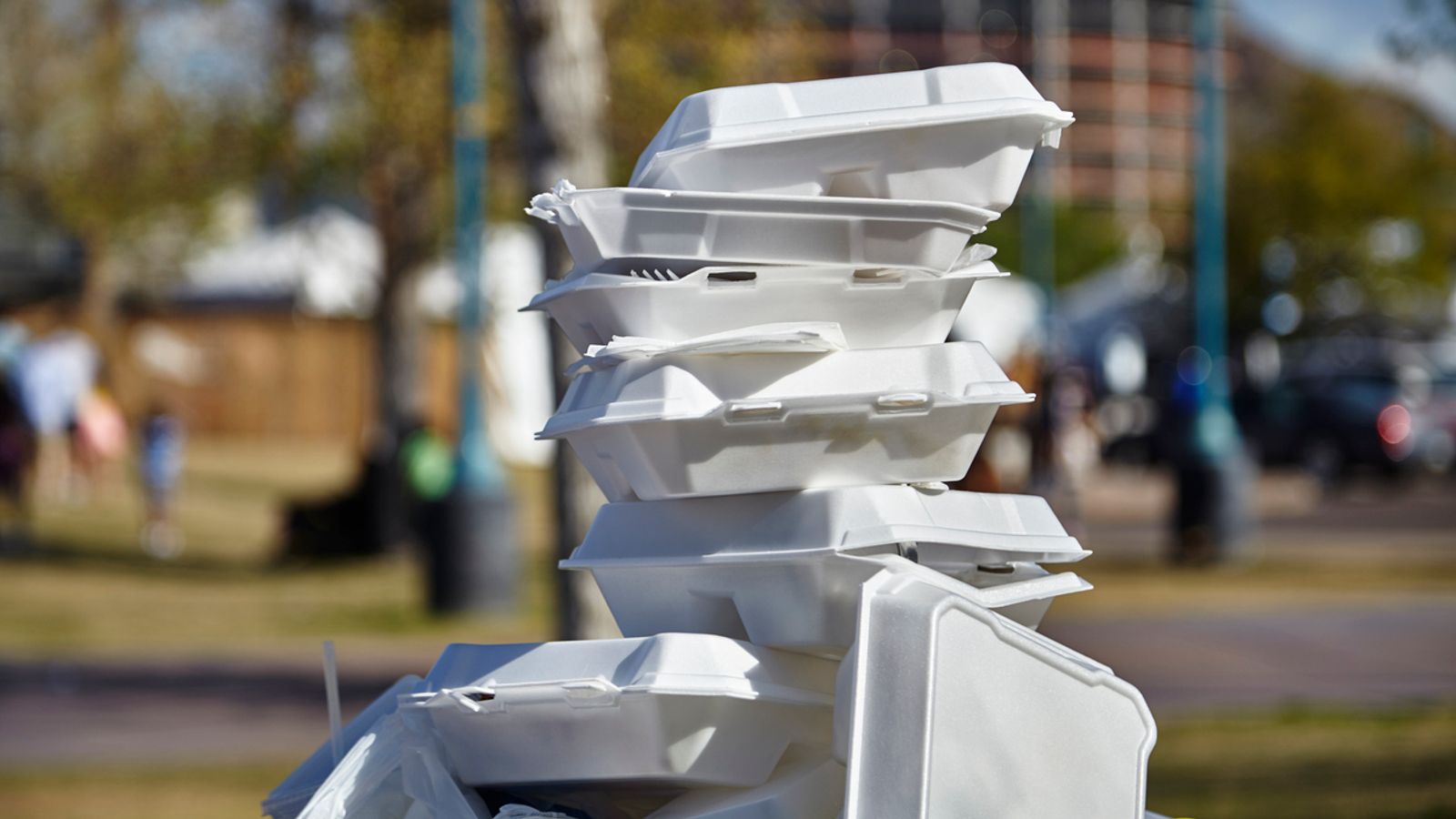A ban on single-use plastic plates and cutlery and certain types of polystyrene cups and containers comes into force in England on Sunday.
It follows a similar move by Scotland last year, while a ban in Wales comes in later this month.
The ban also includes single-use plastic trays, bowls and balloon sticks, with the Westminster government saying the aim was to reduce plastic pollution.
Bally Singh, who runs Hooked Fish and Chips in west London, is having to swap from polystyrene to cardboard containers and cups at a cost of nearly £1,000 a year.
He said: “I agree with the change, we need to be more sustainable in regard to our planet but it is a lot for us, a small business.
“We’ve got to make a change so quick, it’s all of a sudden. I don’t feel there’s a lot of variety out there that we can choose from.
“We’ve had to absorb the cost – I can’t pass it onto customers. We’ve increased our prices already because fish has gone up, the price of oil, electricity, gas has gone up – how much can we pass on to our consumers?”
According to estimates, England uses 2.7 billion items of single-use cutlery, most of which are plastic, and 721m single-use plates per year, but only 10% are recycled.
The average person uses 37 single-use pieces of cutlery and 18 single-use plastic plates every year.
Environment Secretary Thérèse Coffey, who announced the ban in January, said then: “We all know the absolutely devastating impacts that plastic can have on our environment and wildlife.
“We have listened to the public and these new single-use plastic bans will continue our vital work to protect the environment for future generations.
“I am proud of our efforts in this area, we have banned microbeads, restricted the use of straws, stirrers and cotton buds and our carrier bag charge has successfully cut sales by over 97% in the main supermarkets.”
Read more:
Marks & Spencer to ditch plastic bags in favour of paper ones
Microplastics in clouds may be contributing to climate change
Be the first to get Breaking News
Install the Sky News app for free
Takeaways, food vans, vendors, stalls and hospitality businesses are all affected by the new ruling.
Anyone who breaches the law could face a fine and potentially the cost of an investigation.
Pre-packed food is exempt from the ban, but there will be incentives for producers to use packaging that can be recycled.
The government is also looking at measures to reduce the littering of other plastics, such as wet wipes, tobacco filters and sachets.
But recent announcements delaying key climate targets have infuriated environmentalists.
Click to subscribe to ClimateCast with Tom Heap wherever you get your podcasts
Steve Hynd from City to Sea, an organisation that campaigns to stop plastic pollution, said although the plastics ban was a “huge step forward” the group was “disappointed to hear more delays around recycling reforms”.
Earlier this year, the government announced it was delaying packaging recycling reforms for a year, from October 2024 to October 2025.
When Rishi Sunak last week announced a raft of climate policy U-turns, he said he would rule out policy ideas requiring people have seven bins to hit recycling targets.
Mr Hynd said recycling reforms were “a really crucial part of tackling the climate crisis and addressing addiction to single use plastics”.








